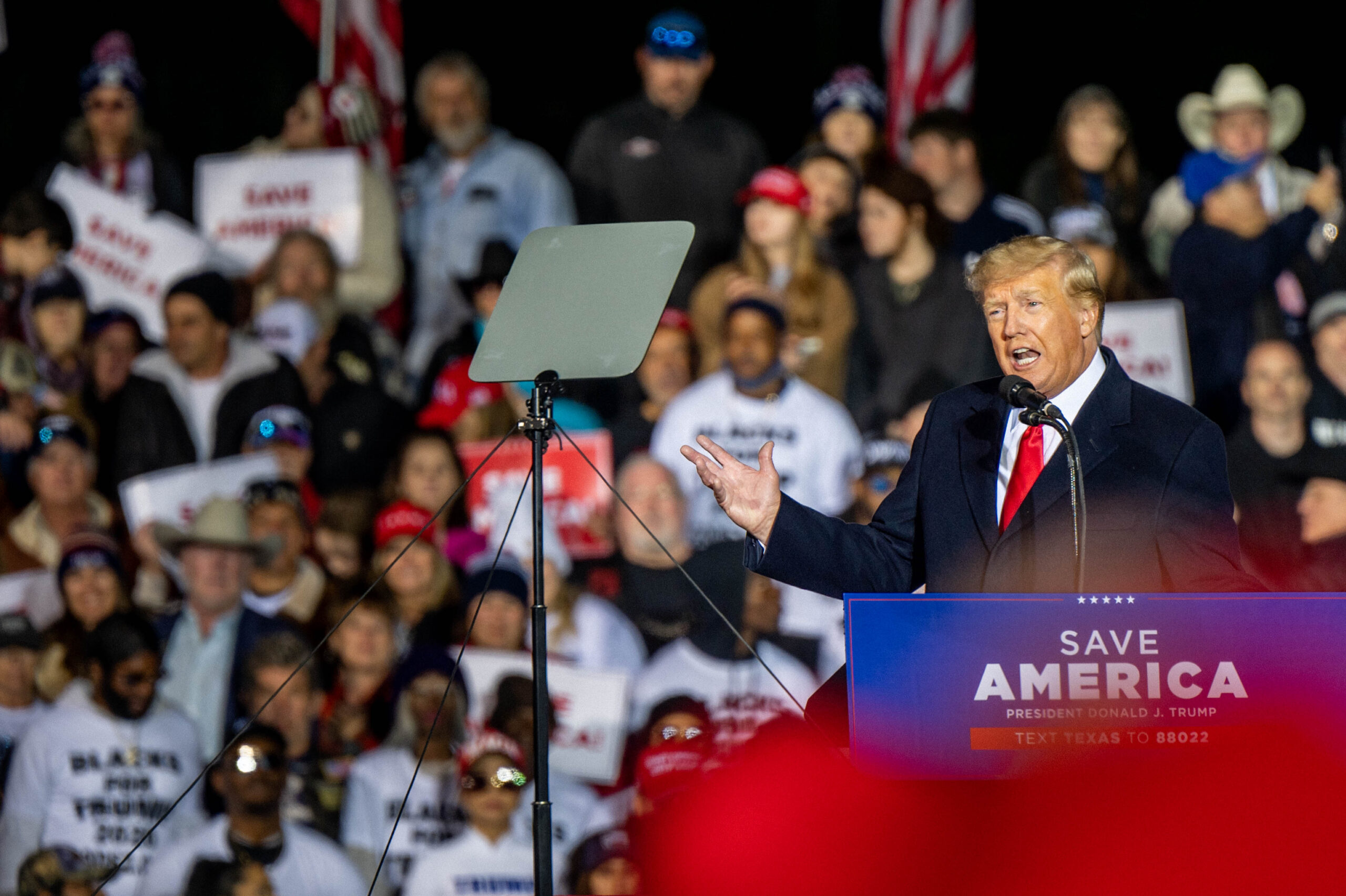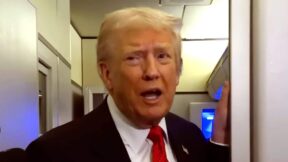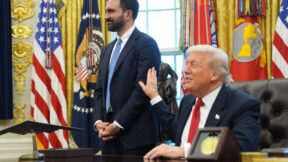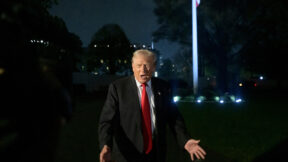Trump’s Fiery Texas Rally Comments Spark Talk of Potential Obstruction of Justice: ‘Shot Himself in the Foot’

Brandon Bell/Getty Images
Former President Donald Trump’s rally in Texas last month spawned multiple headlines across the media as Trump dangled potential pardons for Jan. 6 rioters, tore into prosecutors, and called for the “biggest protest we have ever had in Washington, D.C., in New York, in Atlanta, and elsewhere.”
Those bombastic statements may come back to haunt the former president as critics claim they amount to obstruction of justice.
On Monday, The Guardian published a breakdown of Trump’s legal issues, which may have been exacerbated by his Texas speech.
Dennis Aftergut, a former federal prosecutor, argued Trump “may have shot himself in the foot” during the speech.
“Criminal intent can be hard to prove, but when a potential defendant says something easily seen as intimidating or threatening to those investigating the case it becomes easier,” Aftergut told The Guardian.
During the rally, Trump referred to New York Attorney General Letitia James, New York County District Attorney Alvin Bragg, and Georgia District Attorney Fani Willis as “vicious, horrible people.” Trump added “they’re racists and they’re very sick, they’re mentally sick” before calling on supports to take the streets if “these radical racist vicious prosecutors do anything wrong or illegal.”
As a result, Willis asked the FBI for full-time protection and security at the courthouse where she has convened a special grand jury to investigate Trump’s efforts to overturn the 2020 election in Georgia.
Paul Pelletier, a former Justice Department attorney, explained to The Guardian how this may come back on Trump:
Trump’s history of inciting people to violence demonstrates that his recent remarks are likely to cause a disruption of the pending investigations against him and family members. Should his conduct actually impede any of these investigations, federal and state obstruction statutes could easily compound Mr. Trump’s criminal exposure.
Former Nixon White House counsel John Dean also raised the specter of obstruction of justice over the weekend while on CNN. Dean told Jim Acosta that Trump’s mention of pardons for Jan. 6 rioters “sure sounds like” witness tampering and obstruction of justice.
Acosta asked Dean directly of Trump’s vow, “Is this witness tampering?”
“Boy, it sounds like it to me,” Dean said.
“Under the obstruction [of justice] statute, you don’t have to actually succeed in obstructing — [but only] endeavor to do so. This sounds an awful lot like an endeavor to me,” Dean concluded.




